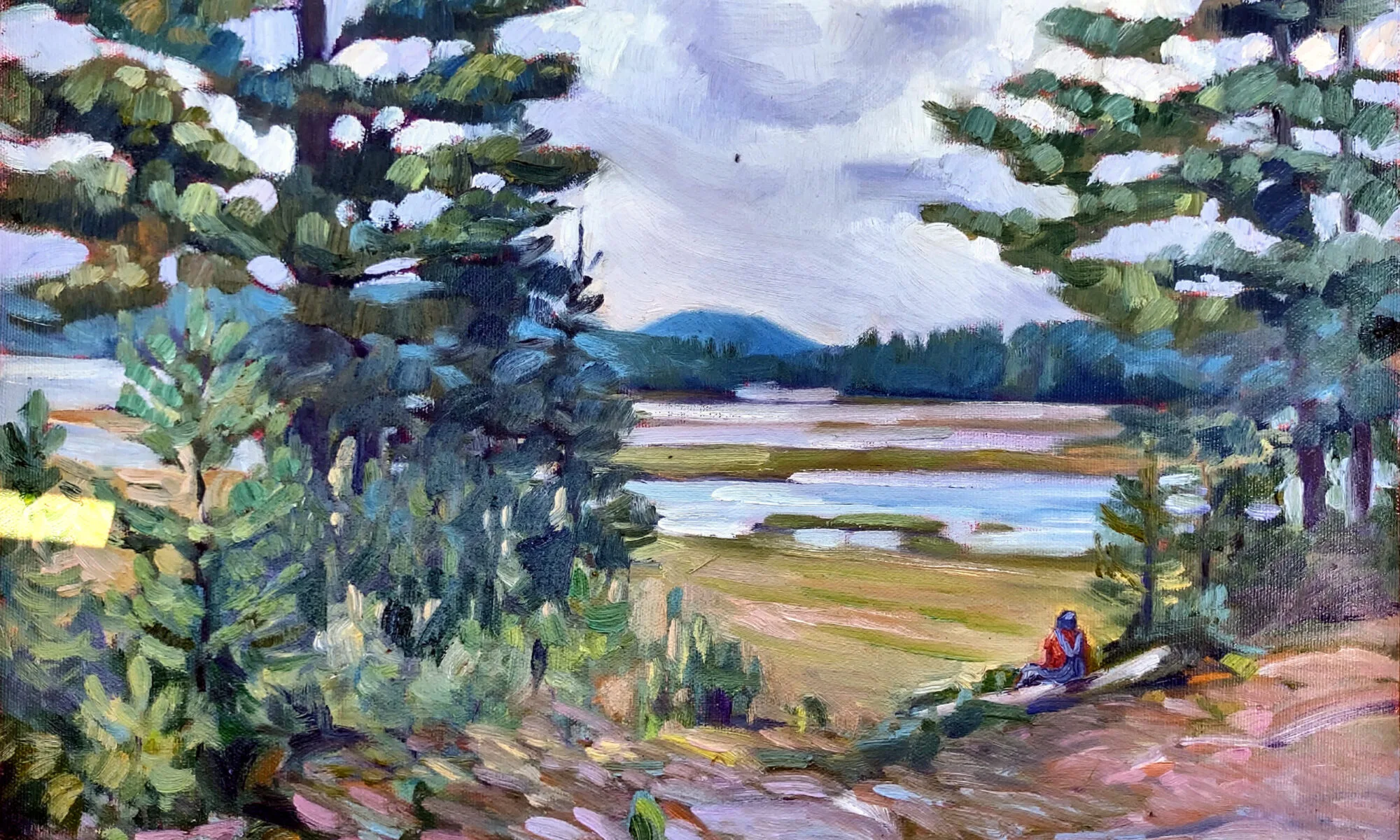Jettison your deep thoughts. You and your painting will both be better for it.
| Apple tree and swing, oil on canvasboard, $1623 unframed. |
Illustrator Christoph Niemann spoke to the New Yorker about learning to draw a tree:
I took the same approach as I did when learning to draw the human body—trying to understand the structure, the weight, the proportions. But I always got lost in the details, and the results didn’t look convincing. Trees are much too complex to follow rules; each is unique, especially in the summer, and I’ve made my peace with that.
I do keep looking to see how the masters solved trees. (I recommend Matisse, Félix Vallotton, and Wayne Thiebaud.) But I admit the most important lesson came from watching the TV host Bob Ross: if you want to draw trees, you have to loosen up and be in a good mood.
 |
| Early Spring, Beech Hill, oil on canvasboard, 8X10, $522 unframed. |
I was once an intense youngster myself. In fact, a wise teacher once suggested that I stop being so ‘sophomoric’. “But I am a sophomore!” I responded, and continued to make ‘serious’ art—all of which I hope has long been consigned to a dumpster. All that angst hinders the process of painting. It’s possible to be serious without being sour.
I never watch TV, so I’ve never seen an episode of Bob Ross’s show. Most of my friends who watched it back in the Eighties were doing so cynically, as an excuse to get high. I was surprised to learn that it was at one point PBS’ biggest show, watched by people from all walks of life.
Those of us in the narrow world of art probably don’t realize that Bob Ross is America’s most celebrated painter—bigger than all the Wyeths put together. He endures in reruns almost 40 years after his show first went on the air.
 |
| Jack Pine, 9X12, oil on primed birch, $696 unframed. |
How is it that Ross endures when so many more ‘important’ painters of Ross’ heydey, like Julian Schnabel, David Salle or Eric Fischl, are unknown to most people? It’s not because of Ross’ paintings. Rather, it’s the way he painted, and who he was.
“I got a letter from somebody here a while back, and they said, ‘Bob, everything in your world seems to be happy.’” Ross said. “That’s for sure. That’s why I paint. It’s because I can create the kind of world that I want, and I can make this world as happy as I want it. Shoot, if you want bad stuff, watch the news.”
When his show went on the air, I was recently married and blasting the Kinks’ Give the People What They Want in our tiny Buffalo flat. If you want to understand anxiety, give the soundtrack of the Eighties a spin. The world was a kaleidoscope of political and economic change, all set against the end of the Cold War.
| Along Kiwassa Lake, 9X12, oil on canvasboard, $696 unframed. |
Most of us can’t just loosen up on demand, but we can make environments which are conducive to happiness. Perhaps that’s one reason that painting is overwhelmingly popular with older people—they’ve learned to jettison their Deep Thoughts and exist in the moment.
Bob Ross was the master of process—his whole show was about it. He painted to encourage himself and others. Apparently, it worked. I agree with him and Niemann—loosen up! You’ll paint better and enjoy the process more.
